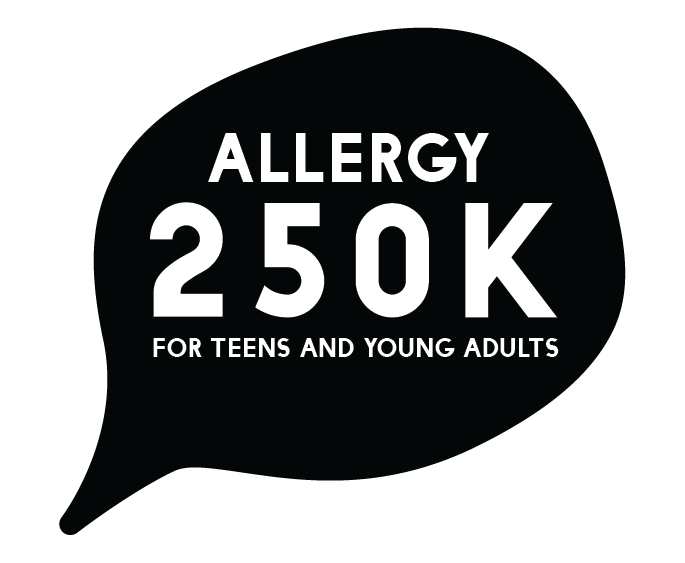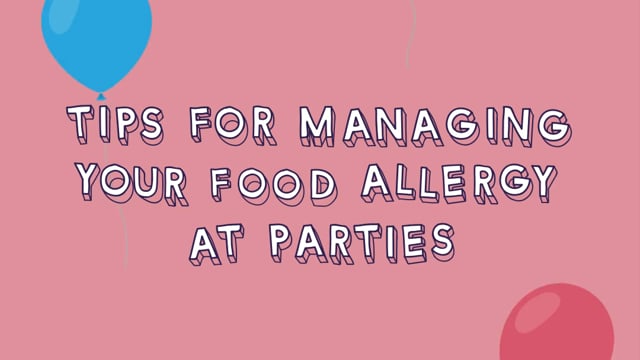Managing Food Allergy at Parties
Listen Now
Top Tips
- Speak to the host about your allergy before the party.
- Eat some food at home before arriving at the party.
- Drinking too much can confuse you and those around you.
- If you think you are having an allergic reaction, speak up and tell a friend/adult who can help you.
Parties can be a lot of fun. However, they can be the source of some seriously awkward situations when you’ve got a food allergy.
Tables will often be crowded with various food items, designed for sharing with all party-goers. Eating utensils and cups can be mistakenly picked-up by someone other than their original owner. As you get older, alcohol will likely be present. For someone with a food allergy, these factors may make you feel uncomfortable about going to a party. Don’t let your food allergy stop you from having the time of your life. Create strategies, have a plan and then… most importantly, have fun!
Simple steps you can follow to help keep you safe include:
Contact the host
As you know, it’s important to disclose your allergies to your friends. But what if you’re not that close to the person hosting the party?
Try getting in touch with the host before the party, send them a message on Facebook or Instagram. Let them know about your food allergy and ask if there will be food available that is safe for you to eat.
Eat beforehand
If you’re unable to get in touch with the host, or from discussion you’ve had with the host, you’re uncertain the food available at the party will be safe, eat at home before the party. It’s better to be well-fed than go hungry or to take risks because you’re starving.
You can consider taking your own snacks to the party too. Should you start to get hungry later on, you’ll know the food you’re eating is safe.
Don’t share
Growing up with food allergy, you will have been taught not to accept food from others without asking what the ingredients are. It goes without saying that you should take the same approach when it comes to being offered drinks.
If you’re unsure of what’s in a particular drink (i.e. you cannot read the label) – don’t consume it. Sharing cups should also be avoided as a person may have consumed the food you’re allergic to and contaminated the drink.
Alcohol
You may not realise, but common food allergens – such as egg, milk (dairy), wheat and fish – are used in the manufacture of some alcoholic drinks. Yes, it is a hassle to ask about ingredients in drinks, but some drinks do contain food allergens.
Note, some alcoholic beverages are exempt from a number of the general food labelling requirements set out in the Australia New Zealand Food Standards Code1 , including the labelling of ingredients. If you plan on drinking at a party, it is important to research the potential food allergens that are in certain alcoholic beverages – especially wine, cocktails, spirits and pre-mixed drinks.
Consuming alcohol can also lead you to make risky food choices as alcohol can affect your judgement. Make sure you’re aware of the risks and have plans in place should you find yourself in a difficult situation. Read more about food allergy and alcohol.
1Food Standards Australia New Zealand, Labelling of Alcoholic Beverages, December 2023
Speak up
Speak to your friends before the party and let them know where they can find your EpiPen® or Anapen® and ASCIA Action Plan (emergency response plan) in case of emergency. Remind the host of your food allergy when you arrive, and ask which foods you should steer clear from. If you think you are having an allergic reaction, speak up and tell a friend/adult who can help you. Don’t go to the bathroom on your own if you are feeling unwell!

